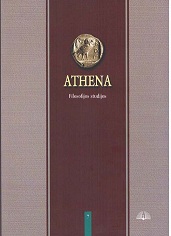Lietuvių kultūros istorija kaip bendruomenės sąmoningumo dirbtuvė
The History of Lithuanian Culture as a Workshop of Community Awareness
Author(s): Darius KuolysSubject(s): Philosophy
Published by: Lietuvos kultūros tyrimų
Keywords: history of culture; symbolic forms.
Summary/Abstract: Vytautas Kavolis envisaged the history of Lithuanian culture as a discipline that links different fields of knowledge and provides a context for them; a discipline that is capable of stirring the intellectual energy of the academic community and assuming part of the initiative of Lithuania’s entire intellectual life. In his view, methodologically renewed history of culture should undertake not only a special academic role but also a social role. From 1989 to 1996, Kavolis expounded these ideas to Lithuanian scholars and politicians involved in culture and education. With his research, lectures and academic papers he became personally engaged in modern history of Lithuanian culture. The history of Lithuanian culture was Kavolis’ path towards making an impact on the reality of the regenerating Lithuanian society and participation in the creation of Lithuanian society and culture. Attaching importance to the history of culture was most likely determined by Kavolis’ existential standpoint and his understanding of cultural research as a reconstruction of symbolic forms significant to the life of the existing community. Important to him was the rooting of the independent human in the past of the community: the twentieth-century human, who has lost his home on earth, must find his place in history, that is, “create the awareness of his belonging to history”. The history of culture is highlighted as a source of meanings and images from which the individual and the community can draw material to fill the framework of their identity. Kavolis also perceived the history of culture as a workshop or a laboratory in which the awareness of the human and the community is matured. Thus he considered the history of culture an important condition for the intellectual independence and creativity of Lithuanian society. Kavolis maintained that in order to carry out its social role, research into the history of Lithuanian culture must be methodologically updated. He attempted to create “a new history of culture” himself, and explained the principles of writing such a history to others. According to Kavolis, a historian should research the evolution of culture as a never-ending process of the change in consciousness, as a permanent reconstruction of symbolic forms, and be an active participant in this process.
Journal: Athena: filosofijos studijos
- Issue Year: 2011
- Issue No: 7
- Page Range: 44-52
- Page Count: 9
- Language: Lithuanian

